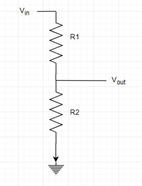This set of Avionics Multiple Choice Questions & Answers (MCQs) focuses on “Gain, Attenuation & Decibels”.
1. What is the component in which the output voltage is higher than the input voltage?
a) Attenuator
b) Amplifier
c) Differential
d) Multiplexer
View Answer
Explanation: An amplifier is a component that increases the amplitude of the input signal. The increase in amplitude is measured as gain. Gain is the ratio of the voltage of the input signal vs output signal.
2. What is the gain of the signal if output and input voltages are 700V and 50mV respectively?
a) 14000
b) 14
c) 71
d) 71400
View Answer
Explanation: Gain = output voltage/input voltage = 700/0.05 = 14000.
3. What is the output signal voltage for a gain of 20 and input voltage of 20mV?
a) 400V
b) 4V
c) 400mV
d) 10V
View Answer
Explanation: Gain = output signal voltage / input signal voltage
Output signal amplitude = 20 x 0.02 = 400mV.
4. The power output of an amplifier is 7 watts. The power gain is 80. What is the input power?
a) 87.5mW
b) 87.5W
c) 13W
d) 13mW
View Answer
Explanation: Gain = power out / power in
Power in = power out / gain = 7/80 = 87.5mW.
5. What is the total gain of amplifiers with a power gain of 6, 8, 5 when connected in series?
a) 24
b) 20
c) 19
d) 240
View Answer
Explanation: Total gain = product of individual gains = 6 x 8 x5 = 240.
6. A two-stage amplifier has an input power of 30μW and an output power of 1.5mW. One stage has a gain of 3. What is the gain of the second stage?
a) 20
b) 16.6
c) 40
d) 22.36
View Answer
Explanation: Total gain = 1.5×10-3/30×10-6 = 50 = stage 1 gain x stage 2 gain
Stage 2 gain = 50 / 3 = 16.6.
7. What should be the value of R2 to have an attenuation of 0.5, if R1=200Ω?

a) 100Ω
b) 300Ω
c) 200Ω
d) 500Ω
View Answer
Explanation: Attenuation =R2/(R2+R1) = 0.5
R2 = (0.5 X R2) + (0.5 X R1)
(0.5 X R2) = 100Ω
R2= 100/0.5 = 200Ω.
8. What should be the gain of an amplifier to have no voltage loss or gain?
a) 2
b) 1
c) 5
d) 0
View Answer
Explanation: An amplifier is usually used to increase the output voltage of a signal. Since gain = output voltage/input voltage and the input voltage is equal to the output voltage, the gain of the amplifier must be 1.
9. What should be the gain of an amplifier to have zero voltage loss if the signal is already attenuated half that of the original signal?
a) 1/2
b) 1
c) 2
d) 0
View Answer
Explanation: For the signal to have zero voltage loss gain of the attenuator, amplifier combination must be 1. Attenuation x gain =1. Gain = 1/attenuation = 1/(0.5) = 2.
10. What is the value of the total gain if A represent attenuation and G represent gain and all are cascaded?
A1=0.5 G1=5
A2=0.035 G2=20
a) 24.465
b) 99.9825
c) 25.535
d) 1.75
View Answer
Explanation: Total gain = product of individual gains and attenuation = 5 X 20 X 0.5 X 0.035 = 1.75.
11. The unit decibel is a way of expressing the hearing response of the human ear.
a) True
b) False
View Answer
Explanation: The gain or loss of a circuit is usually expressed in decibels (dB), a unit of measurement that was originally created as a way of expressing the hearing response of the human ear to various sound levels. A decibel is one-tenth of a bel.
12. What is the gain in decibels if the amplifier has an input of 3mV and output of 5V?
a) 54.4
b) 64
c) 64.4
d) 32
View Answer
Explanation: dB = 20 log(5/0.003) = 20 log 1666.67 = 20 x 3.22 =64.4.
13. When a decibel value is computed by comparing a power value to 1 mW it is called as?
a) dBm
b) dBc
c) dB
d) DB
View Answer
Explanation: When the gain or attenuation of a circuit is expressed in decibels, implicit is a comparison between two values, the output and the input. An often used reference level in communication is 1 mW. When a decibel value is computed by comparing a power value to 1 mW, the result is a value called the dBm. It is computed with the standard power decibel formula with 1 mW as the denominator of the ratio.
Sanfoundry Global Education & Learning Series – Avionics.
To practice all areas of Avionics, here is complete set of 1000+ Multiple Choice Questions and Answers.
If you find a mistake in question / option / answer, kindly take a screenshot and email to [email protected]
- Practice Aeronautical Engineering MCQs
- Apply for Aerospace Engineering Internship
- Check Aerospace Engineering Books
- Check Aeronautical Engineering Books
- Check Avionics Books
